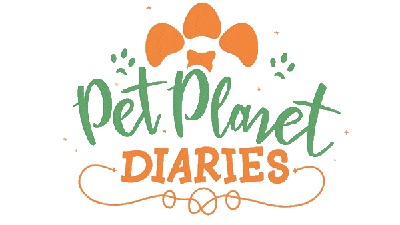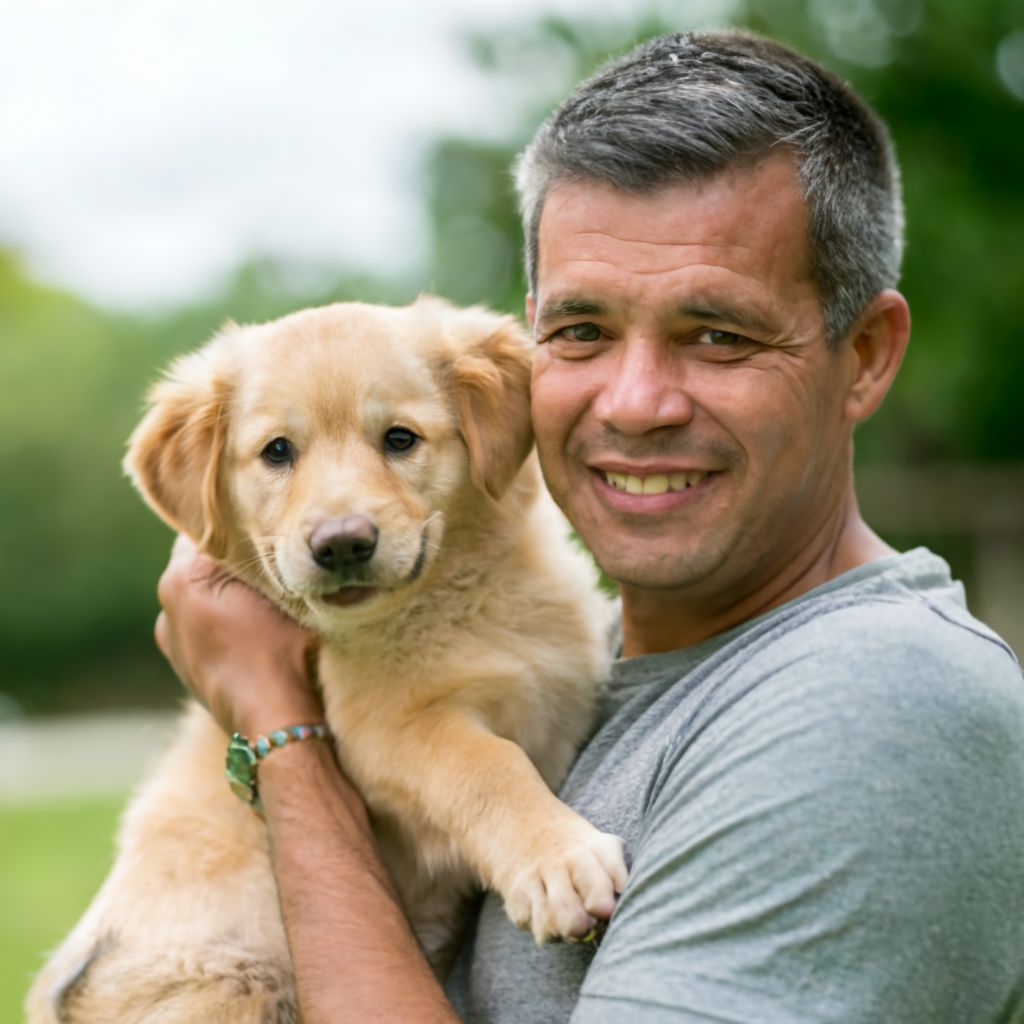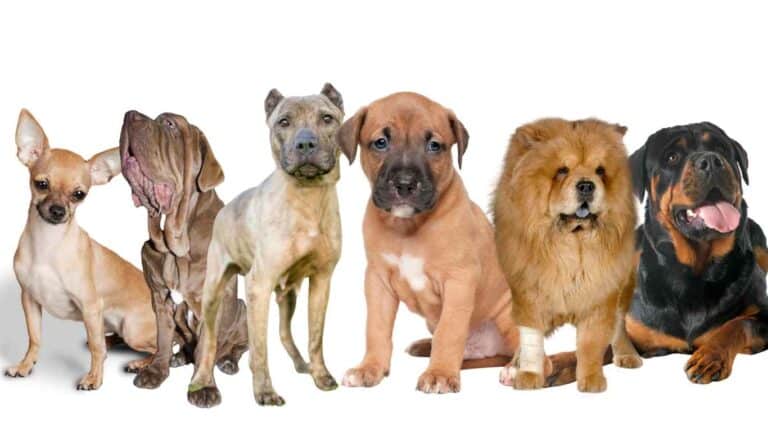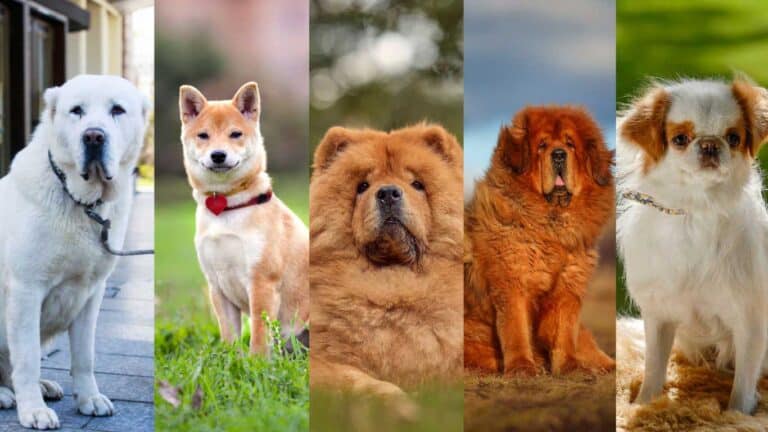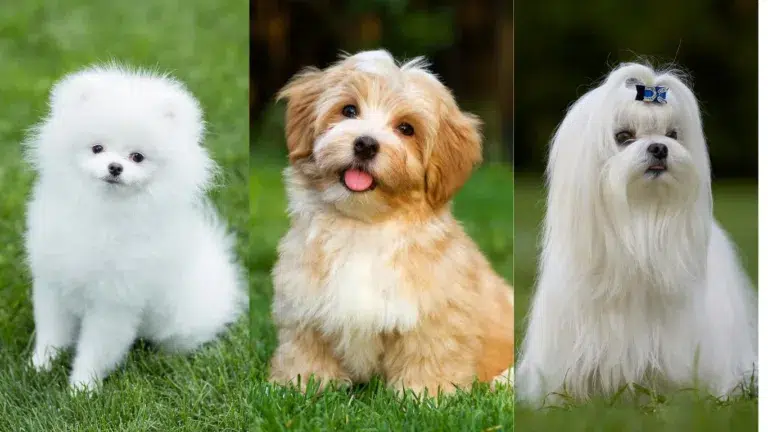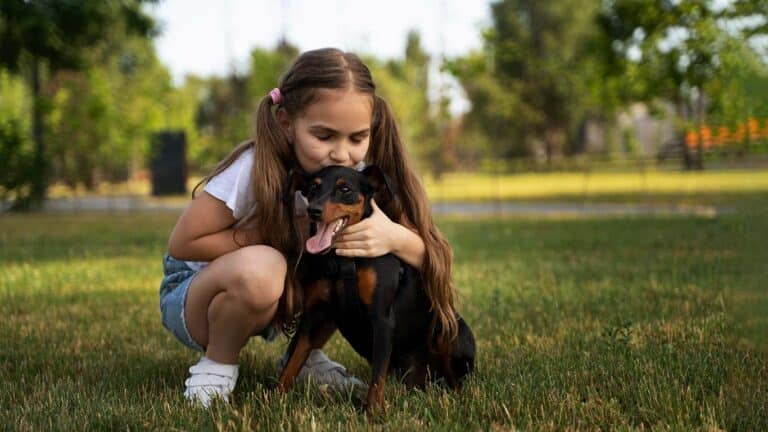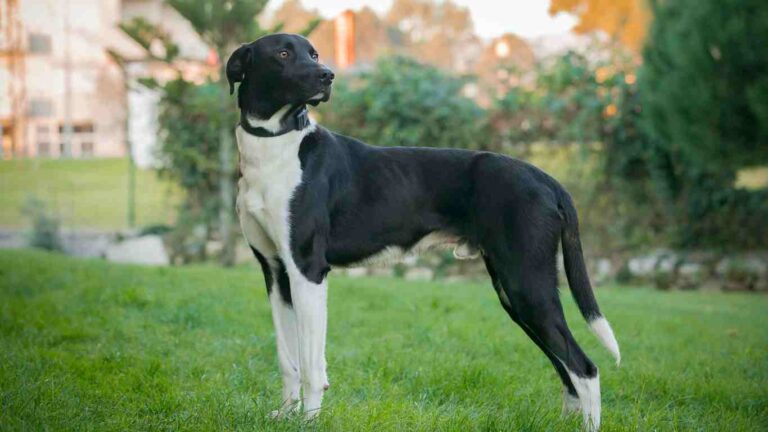When it comes to protecting your livestock on the farm, having the right guardian dog by your side is crucial. Livestock guardian dog breeds are specially bred to ensure the safety and well-being of your farm animals, keeping predators at bay. These trustworthy four-legged companions possess the ideal qualities to protect your livestock guardian dog breeds and create a secure environment for them. In this article, we will explore the top livestock guardian dog breeds that are commonly used on farms, so you can make an informed decision for your own farm’s needs.
Core Insights to Top Livestock Guardian Dog Breeds:
Qualities to Look for in a Farm Dog
Farm dogs play a vital role as protectors and guardians of livestock. To excel in their role, these dogs must possess specific qualities that make them well-suited for farm life and the task at hand. When selecting a farm dog, it is essential to look for the following desirable qualities:
- Hyper-attentiveness to Livestock: A successful farm dog should demonstrate a keen sense of awareness and be constantly vigilant when it comes to protecting the livestock. Their ability to detect any signs of danger or distress in the animals is crucial for early intervention.
- Large and Muscular Build: Farm dogs should have a sturdy physique and considerable strength. Their size and physical presence act as a deterrent to potential predators, making them more effective in safeguarding the livestock.
- Willingness to Engage: It is important for a farm dog to have a proactive and fearless attitude towards potential threats. They should be brave enough to confront and intimidate predators, preventing any harm to the livestock.
- Territorial Nature: A desirable quality in a farm dog is their territorial behavior. Dogs that consistently mark their territory through scent are more likely to deter predators and establish dominance in the area.
By carefully considering these qualities when selecting a farm dog, you can ensure that your chosen companion possesses the necessary attributes to fulfill their role as a capable and dedicated livestock guardian.
“The ideal farm dog combines hyper-attentiveness, a large and muscular build, the willingness to engage, and a territorial nature to protect the livestock effectively.”
Great Pyrenees
The Great Pyrenees is a classic and popular choice for a farm dog. With its large, snow-white appearance and gentle nature, it is an excellent livestock guardian dog breeds. These dogs are known for passively monitoring the livestock and roaming the property to ensure nothing is out of the ordinary. They thrive in colder climates and require regular bathing and grooming.
| Qualities | Details |
|---|---|
| Size | Large |
| Appearance | Snow-white |
| Behavior | Gentle, passive monitoring |
| Climate | Colder climates |
| Care | Regular bathing and grooming |
The Great Pyrenees is highly regarded as one of the best options for protecting farm animals. Their large size and striking appearance serve as a deterrent to potential threats. However, it’s their gentle and calm nature that makes them particularly suited for the role of a livestock protector. These dogs have a passive approach, quietly observing and monitoring the flock without displaying unnecessary aggression.
Great Pyrenees dogs naturally assert their authority on the farm by establishing a clear territory. They roam the property, marking their presence through scent markings and ensuring predators are kept at bay. Their thick, double coat helps to keep them warm in colder climates, making them resilient and well-adapted to harsh weather conditions.

To maintain their appearance, Great Pyrenees dogs require regular bathing and grooming sessions. The long, flowing white fur can become dirty and tangled if not properly cared for. Additionally, routine grooming helps to keep their coat healthy and prevent mats or skin irritations.
These beautiful dogs are not only effective at protecting your livestock but can also become beautiful companions who treasure their family bonds.
In brief, Great Pyrenees dogs are an exceptional choice for farm owners looking for a reliable and gentle livestock guardian. Their imposing size and watchful nature make them a formidable deterrent to potential predators. With regular care and attention, these majestic dogs will not only protect your livestock but also become beloved members of your family.
Rottweiler
Rottweilers are another popular choice for farm dogs. Their intimidating appearance and strong bite force make them a formidable protector of livestock. They are highly trainable and extremely loyal to their owners. However, they require early socialization and consistent, reward-based training to ensure their aggressive tendencies are well-managed.
Known for their distinctive black and tan markings, Rottweilers have a powerful presence that can deter potential threats. Their muscular build and natural instincts make them excellent guard dogs capable of defending livestock against predators.
Rottweilers are intelligent and eager to please, making them highly responsive to training. By establishing a strong leadership role and using positive reinforcement techniques, you can harness their protective instincts and channel them towards safeguarding your flock.
“Rottweilers are highly trainable and reliable working dogs. With proper socialization and training, they can excel as livestock guardians and provide peace of mind for farmers.”

It is important to note that Rottweilers have a strong protective drive, which can result in aggressive behavior if not properly managed. They require ongoing socialization to ensure they are comfortable around humans and other animals. Regular exercise and mental stimulation are also essential to keep them physically and mentally balanced.
| Pros | Cons |
|---|---|
| Intimidating appearance | Requires early socialization |
| Strong bite force | Potential for aggression if not trained properly |
| Highly trainable | Needs regular exercise and mental stimulation |
| Loyal and protective | Not suitable for inexperienced owners |
Rottweilers can be a valuable asset to any farm, providing a strong and reliable presence as livestock guardians. With proper training, socialization, and care, these intelligent dogs can help ensure the safety and security of your animals.
Anatolian Shepherd
The Anatolian Shepherd is a tough and stoic breed specifically bred for protecting livestock. With its roots in the Anatolian region of Turkey, this powerful and resilient dog is highly regarded as a capable livestock guardian. Its natural instincts make it an excellent choice for farms and rural areas, where it can fulfill its role of protecting livestock with unwavering dedication.
The Anatolian Shepherd has a calm and composed presence on the farm, instilling a sense of security among the livestock. Its independent thinking allows it to make decisions based on the situation at hand, making it a reliable and trustworthy guardian. However, it is important to assert yourself as the leader with these dogs through consistent training and establishing clear boundaries, as they have a strong instinct to take charge if not properly guided.

One of the notable characteristics of the Anatolian Shepherd is its tendency to bark. These dogs tend to be vocal, using their bark as a tool to ward off perceived threats and alert their human companions. This constant vigilance and communication make them valuable assets in safeguarding the livestock and deterring potential predators.
The Anatolian Shepherd at a Glance:
- Origin: Turkey
- Size: Large
- Coat: Short or medium length, coarse, dense
- Color: Various shades of fawn with or without a black mask
- Temperament: Independent, protective, calm
- Lifespan: 11-13 years
With its tough and rugged demeanor, the Anatolian Shepherd is a reliable and dedicated livestock guardian dog breeds. Its presence alone is often enough to deter potential threats, and its instinctual protective nature ensures the safety of the farm animals. If you’re in search of a dependable guardian for your livestock, the Anatolian Shepherd is an excellent choice.
Bernese Mountain Dog
Bernese Mountain Dogs, originally used in the Swiss alps, are gentle giants that make great livestock guardians. Despite their short lifespan, these dogs are highly effective at warding off predators due to their dense bone composition and protective nature.
One of the key considerations when owning a Bernese Mountain Dog is their regular grooming needs. Their long, thick coat requires frequent brushing to prevent matting and keep it in good condition. Additionally, these dogs are prone to shedding, so regular grooming sessions can help minimize loose hair in the house and on the farm.
It is important to monitor the health of Bernese Mountain Dogs, especially when it comes to their insulin levels. Obesity can be a concern for these dogs, so maintaining a healthy diet and exercise routine is essential. Regular visits to the veterinarian can help ensure their overall well-being and longevity.
“Bernese Mountain Dogs are known for their calm and affectionate temperament, making them a great addition to any farm. Their loyalty and natural instincts make them excellent protectors of livestock.”
To appreciate the beauty and size of Bernese Mountain Dogs, take a look at the image below:
Pit Bull
Pit Bulls, despite their reputation, can be excellent livestock guardians. They were originally bred for bull-baiting, showcasing their strength and protective instincts. They are gentle with their families but can be territorial and show aggression towards outsiders. Proper socialization and the use of a dog muzzle are recommended for walks in public areas.
When properly trained and socialized, Pit Bulls can be trusted and reliable guardians for farm animals. Their muscular build makes them formidable protectors, and their innate drive to protect can be channeled towards keeping livestock safe from potential threats.
Proper socialization and training are crucial for Pit Bulls to be effective livestock guardians. It is important to establish clear boundaries and teach them appropriate behavior around other animals and people. With consistent training and positive reinforcement, Pit Bulls can excel in their role as livestock protectors.
While Pit Bulls have the potential to be excellent livestock guardians, it’s important to note that individual temperaments may vary. Some Pit Bulls may display more aggressive behavior than others, so it’s essential to assess each dog’s temperament and suitability for the specific farm environment.
Benefits of Pit Bulls as Livestock Guardians:
- Strength and protective instincts
- Gentle and loyal towards family
- Potential deterrent to intruders or predators
Considerations for Pit Bulls as Livestock Guardians:
- Territorial behavior
- Possible aggression towards outsiders
- Need for proper socialization and training
- Use of a dog muzzle for public walks
To sum up, Pit Bulls can be reliable and effective livestock guardians when given the right training, socialization, and environment. Despite their reputation, these dogs have the potential to protect farm animals and provide a valuable service on the farm.
Mastiff: Powerful and Protective Family Guard Dogs
Mastiffs are renowned for their impressive size, strong build, and unwavering loyalty. Within the Mastiff breed, several notable variations stand out as exceptional family guard dogs and livestock guardians. The Bullmastiff, Neapolitan Mastiff, and Tibetan Mastiff are the epitome of strength and protective nature.

As the name suggests, the Bullmastiff is a cross between a bulldog and a mastiff. This combination results in a steadfast and courageous dog that is both gentle with family members and fiercely protective. With proper training and socialization, Bullmastiffs excel in their role as family guard dogs and are adaptable to also serve as livestock guardians when needed.
The Neapolitan Mastiff, originating from Italy, is known for its imposing size and muscular physique. This fiercely protective breed requires an experienced and assertive owner who can effectively control its aggression. Despite their intimidating appearance, Neapolitan Mastiffs can bond closely with their family and provide the utmost protection.
The Tibetan Mastiff, hailing from the Himalayas, boasts a thick, weather-resistant coat and a powerful build. Bred specifically to protect livestock from predators in extreme weather conditions, Tibetan Mastiffs exhibit an independent and courageous nature. Their strong guarding instincts make them a suitable choice for both family protection and keeping livestock safe on large properties.
Proper Training and Control
It’s essential to recognize that Mastiffs, regardless of the specific breed, require proper control and active training due to their size and inherent protective nature. Socialization from an early age is crucial to ensure they develop into well-mannered and obedient dogs. With the right approach, Mastiffs can distinguish between friend and foe, providing a safe and secure environment for your loved ones and farm animals.
One effective training tool that can aid in controlling a Mastiff’s movements is an electric dog fence system. By properly installing and using an electric dog fence, you can create boundaries and prevent your Mastiff from straying into unsafe areas or causing harm to livestock. Additionally, incorporating training treats into their daily routine can reinforce positive behavior and create a lasting bond.
Comparative Characteristics of Mastiff Breeds
| Breed | Size | Temperament | Coat |
|---|---|---|---|
| Bullmastiff | Large | Loyal and Protective | Short and Dense |
| Neapolitan Mastiff | Giant | Strong-Willed and Guardian | Thick and Loose |
| Tibetan Mastiff | Giant | Independent and Courageous | Long and Weather-Resistant |
Each Mastiff breed offers its unique set of qualities and characteristics. Consider your specific requirements and consult with a reputable breeder or trainer to select the best Mastiff breed for your family and farm protection needs.
Doberman
Dobermans are known for their exceptional qualities as livestock guardians. With their loyalty, intelligence, and athleticism, they make an excellent choice for protecting your farm animals.

Dobermans are highly alert, always aware of their surroundings, and quick to respond to any potential threats. Their keen senses and ability to run long distances without exhaustion make them adept at chasing off predators that might harm your livestock.
In order to maintain their optimal performance, Dobermans require regular training and exercise. Engaging them in activities that challenge their mental and physical abilities will help keep them sharp and vigilant in their livestock protection duties.
To aid in their training, you can consider using a 2-in-1 electric dog fence system with a remote dog trainer. This system allows you to establish boundaries for your Doberman and provide instant correction when necessary, reinforcing their understanding of their role as livestock guardians.
Dobermans are a valuable asset to any farm, bringing their alertness, athleticism, and loyalty to the task of protecting your livestock. With proper training and care, they can become invaluable members of your farm family.
| Qualities | Description |
|---|---|
| Loyalty | Dobermans are fiercely loyal to their owners and will go to great lengths to protect their livestock. |
| Intelligence | These dogs are highly intelligent and quick learners, making them easy to train for their guardian duties. |
| Athleticism | Dobermans possess exceptional speed and endurance, allowing them to chase away predators and cover large areas. |
| Alertness | With their sharp senses and constant vigilance, Dobermans are always on the lookout for any potential threats to your livestock. |
Join the Pet Planet Diaries
Sign up for our newsletter to get the latest tips, stories, and exclusive insights into the wonderful world of pets.
Final Remarks
Livestock guardian dog breeds are crucial for protecting your farm animals from predators. The breeds mentioned in this article, including the Great Pyrenees, Rottweiler, and Anatolian Shepherd, are popular choices due to their unique qualities and abilities. These dogs are specifically bred to watch over your livestock and provide a sense of security.
When selecting a livestock guardian dog breeds for your farm, it is important to consider the specific needs of your animals and your lifestyle. Each breed has its own characteristics and requirements. Take the time to research and understand the temperaments, exercise needs, and grooming demands of the different breeds.
Remember, having a livestock guardian dog breeds not only protects your farm animals but also brings companionship and an extra set of eyes to your property. These dogs form a close bond with their charges and will go to great lengths to keep them safe.
Investing time and effort into training and socializing your livestock guardian dog breeds will ensure their effectiveness in protecting your herd or flock. Educate yourself on proper training methods and consult with professional trainers if needed. In the end, the right livestock guardian dog breeds can provide you with peace of mind, knowing that your farm animals are well-protected.
FAQ
What are the top livestock guardian dog breeds for farms?
The top livestock guardian dog breeds for farms include the Great Pyrenees, Rottweiler, Anatolian Shepherd, Bernese Mountain Dog, Pit Bull, Mastiff, and Doberman.
What qualities should I look for in a farm dog?
Qualities to look for in a farm dog include hyper-attentiveness to livestock, a large and muscular build, the willingness to engage with potential threats, territorial behavior, and constant marking of their territory.
Why are Great Pyrenees popular as farm dogs?
Great Pyrenees are popular as farm dogs because of their large, snow-white appearance, gentle nature, and the ability to passively monitor livestock while roaming the property to ensure nothing is out of the ordinary.
Are Rottweilers suitable as livestock guardians?
Yes, Rottweilers are suitable as livestock guardians. Their intimidating appearance and strong bite force make them formidable protectors of livestock. Proper early socialization and consistent, reward-based training are important to manage their aggressive tendencies.
What makes Anatolian Shepherds suitable for protecting livestock?
Anatolian Shepherds are suitable for protecting livestock due to their tough and stoic nature. They have a calming presence on the farm and are known for their independent thinking. It is important to assert yourself as the leader with these dogs and provide proper training to prevent them from taking charge.
What are the characteristics of Bernese Mountain Dogs as livestock guardians?
Bernese Mountain Dogs are gentle giants that make great livestock guardians. Their dense bone composition and protective nature make them effective at warding off predators. However, their short lifespan, regular grooming requirements, and tendency to shed should be considered.
Can Pit Bulls be effective as livestock guardians?
Yes, Pit Bulls can be effective livestock guardians. Despite their reputation, they were originally bred for bull-baiting and showcase protective instincts. Proper socialization and the use of a dog muzzle are recommended for walks in public areas.
Are Mastiffs suitable as family guard dogs and livestock guardians?
Yes, Mastiffs such as the Bullmastiff, Neapolitan Mastiff, and Tibetan Mastiff are suitable as both family guard dogs and livestock guardians. Their strong build and protective nature make them effective in both roles. However, their aggressive nature and size require proper control and active training.
Are Dobermans good at protecting livestock?
Yes, Dobermans are excellent livestock guardians. Known for their loyalty, intelligence, and athleticism, they can chase off predators. Regular training and exercise are important to maintain their optimal performance.
Why are livestock guardian dogs essential for farms?
Livestock guardian dogs are essential for farms as they play a crucial role in protecting farm animals from predators. They provide security and peace of mind for farmers, ensuring the safety of their livestock.
With a passion for canine companionship and a wealth of experience spanning 15 years, Dan Schroeder stands as a distinguished authority in the realm of dog health, training, and beyond.
From an early age, Dan found solace and joy in the company of four-legged friends, sparking a lifelong dedication to understanding and enhancing the lives of dogs. His journey into the world of canine expertise began over a decade and a half ago, marked by a relentless pursuit of knowledge in the fields of dog health, behavior, and training.
